The Cannondale Scalpel HT Hi-MOD 1 is a no holds barred cross-country race bike, with some interesting and innovative features.
The bike features Cannondale’s signature Lefty Ocho fork, with 110mm travel, plugged into a slack front end.
There are also some neat features on the frame to keep it running smoothly and as light as possible, reflected in the impressive sub-10kg weight for my size large test bike.
With speed uphill just as important as down, there’s a stiff carbon chassis designed to get your power to the rear wheel as efficiently as possible.
Cannondale Scalpel HT Hi-MOD 1 frame
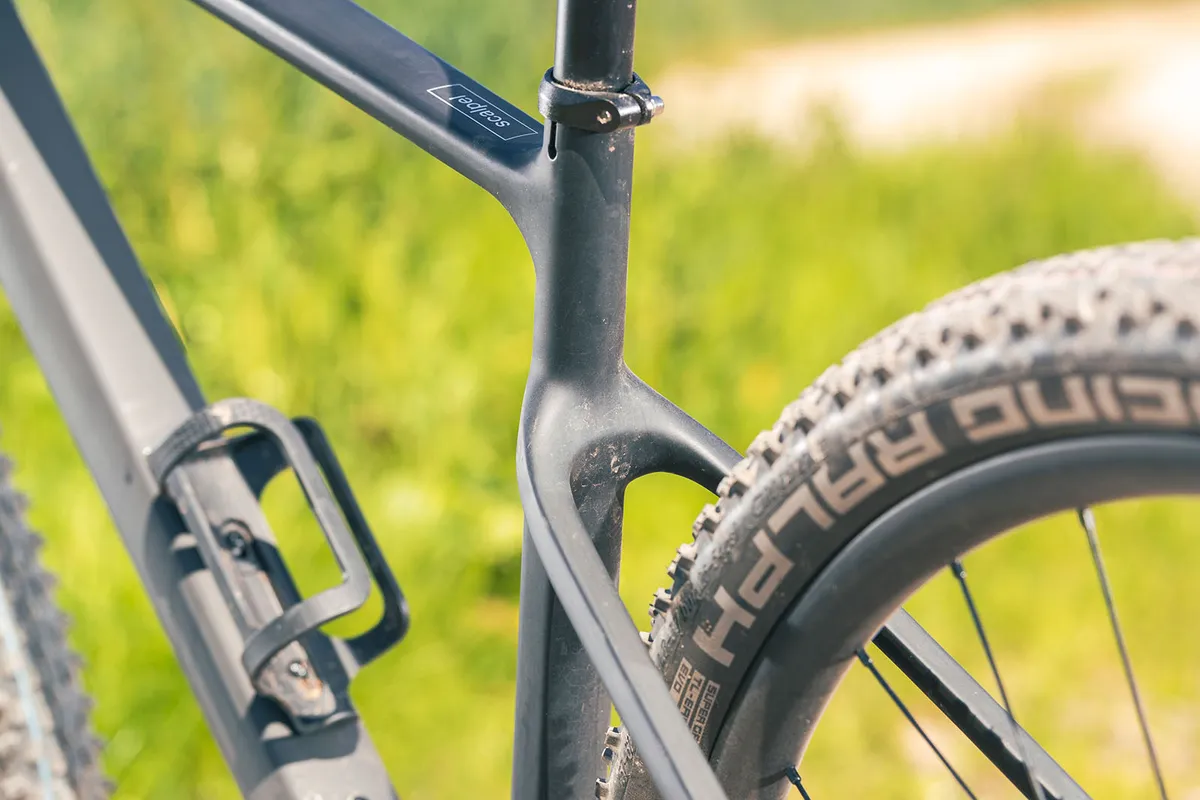
Cannondale’s high-spec high-modulus Hi-MOD carbon is used on this model of the Scalpel HT, which helps keep the (claimed) weight to below 900g on the smaller sizes.
The frame cuts a distinctive look, with dropped seatstays working with flattened ‘flex zones’ in the chainstays said to reduce chatter.
These chainstays are flanked by a SRAM UDH hanger at the rear and a large PB30-86 bottom bracket shell at the front.
The cable for the rear derailleur and the brake hose loop through cutouts below the bottom bracket shell. These are neatly covered by a pair of moon-shaped rubberized bolt-on protectors. This should help with easier cable routing.
Cables are routed internally, with Cannondale offering you the ability to run them with full-length outers for longevity or partial outers, to save weight. The bike comes as stock with fully sheathed cables.
The rear wheel’s axle is stepped – once you’ve unscrewed the end from the frame’s threads, the non-driveside’s open dropout allows you to remove the wheel quickly without removing the axle completely from the hub.
Cannondale Scalpel HT Hi-MOD 1 geometry
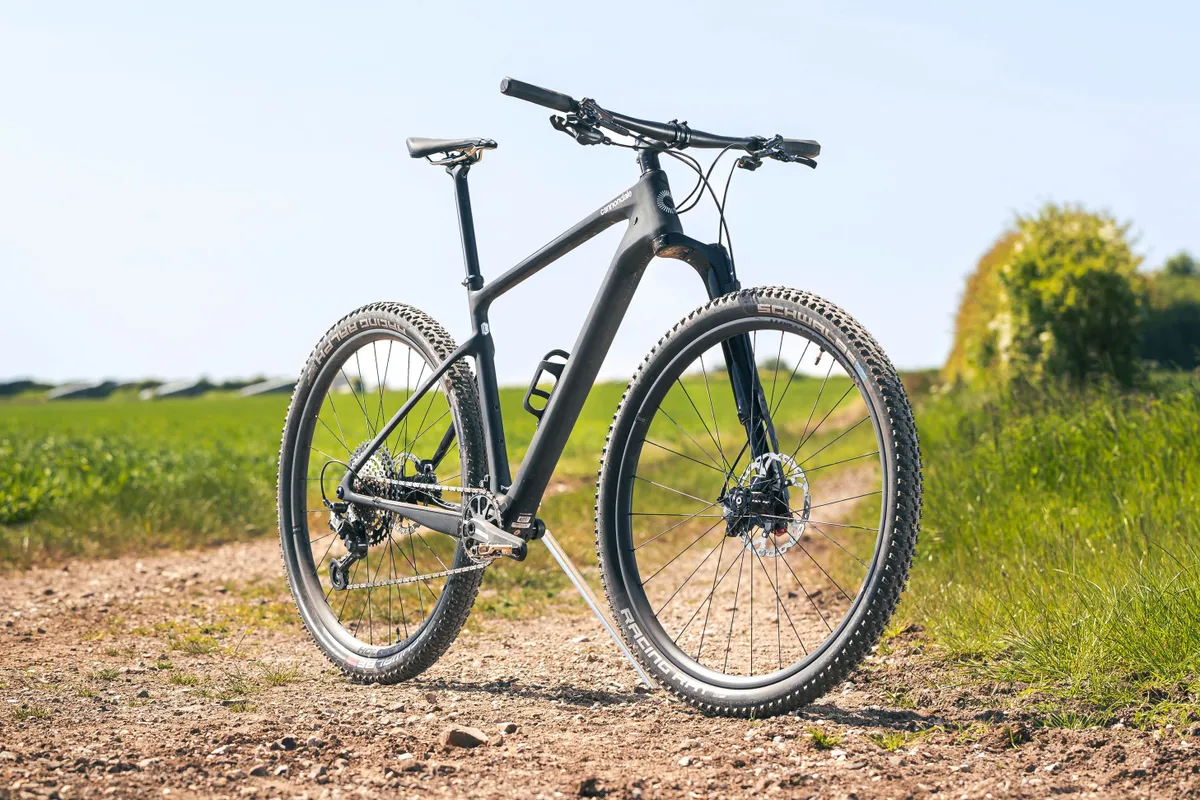
The Scalpel HT's front-end geometry is interesting.
Cannondale has given the bike a slack (for XC) 66.5-degree head angle – though I measured mine a little steeper than that. Slacker angles calm steering, in general.
This is paired with a long offset fork. In theory, this longer offset reduces the trail figure (or, caster effect – think of your supermarket trolley wheels), giving sharper handling.
The two are designed to complement each other, with high-speed stability via the head angle and consequently longer front centre measurement, while the fork offset should ensure handling remains snappy.
At the back of the bike, chainstay lengths grow with larger frame size – something Cannondale calls Proportional Response Geometry.
| | S | M | L | XL |
|---|---|---|---|---|
| Seat angle (degrees) | 74.5 | 74.5 | 74.6 | 74.6 |
| Head angle (degrees) | 66.5 | 66.5 | 66.5 | 66.5 |
| Chainstay (mm) | 430 | 435 | 440 | 445 |
| Seat tube (mm) | 390 | 440 | 480 | 530 |
| Top tube (mm) | 572 | 594 | 617 | 652 |
| Head tube (mm) | 99 | 110 | 122 | 135 |
| Fork offset (mm) | 50 | 50 | 50 | 50 |
| Trail (mm) | 109 | 109 | 109 | 109 |
| Bottom bracket drop (mm) | 59 | 59 | 59 | 59 |
| Bottom bracket height (mm) | 318 | 318 | 318 | 318 |
| Wheelbase (mm) | 1123 | 1151 | 1181 | 1212 |
| Standover (mm) | 754 | 790 | 819 | 855 |
| Stack (mm) | 607 | 617 | 629 | 641 |
| Reach (mm) | 404 | 423 | 444 | 465 |
Cannondale Scalpel HT Hi-MOD 1 specifications
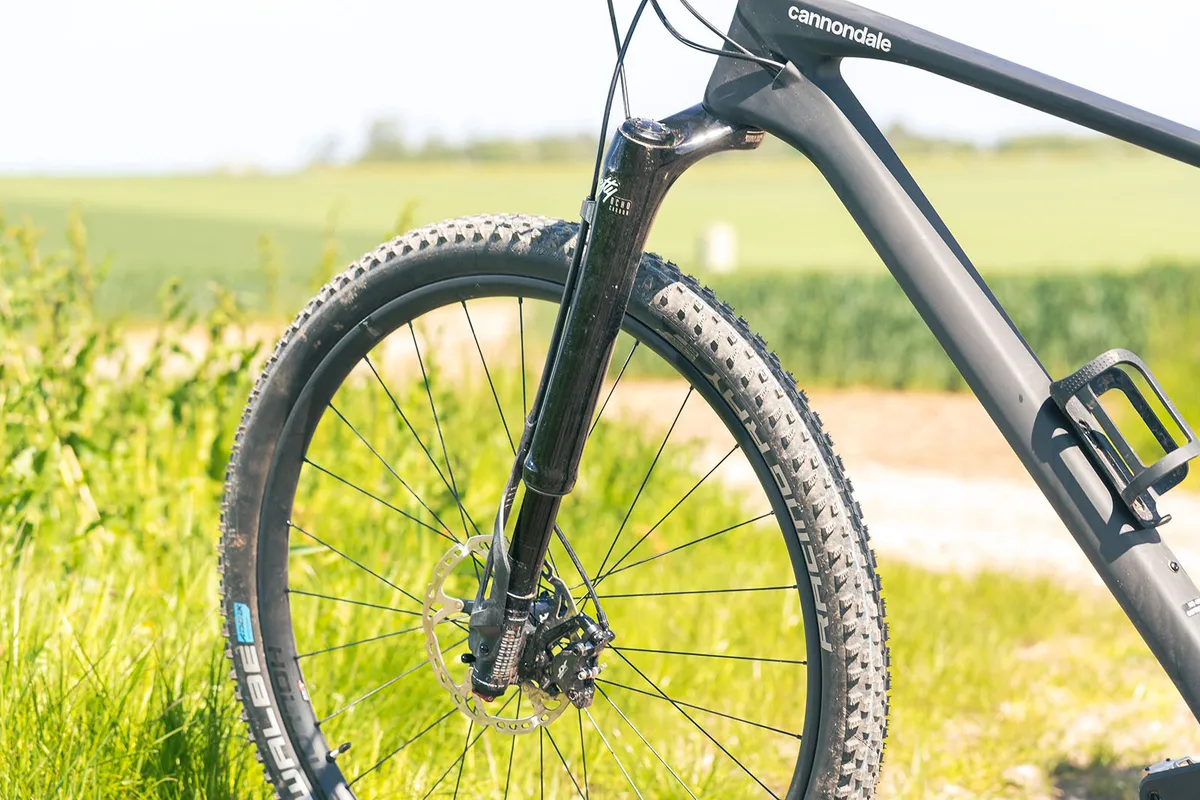
The most notable component is the Lefty Ocho fork. This single-sided fork offers up to 110mm of travel, and has a remote lockout.
The front wheel requires a specific front hub, and is attached via a 5mm bolt. The front brake calliper is mounted on a removable bracket, held in place by a lever, so you’re not required to unbolt your brake to remove the wheel.
There’s an integrated hose guide, as well as a stanchion guard.
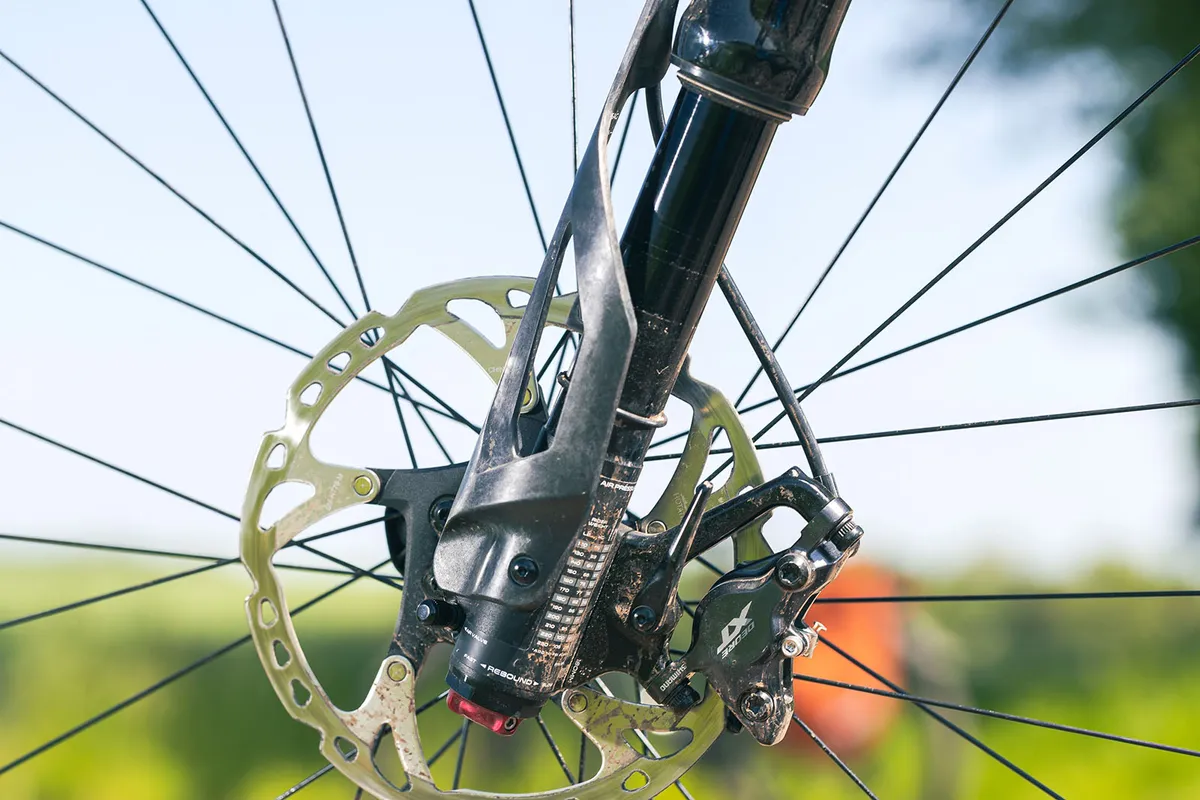
Elsewhere, Shimano provides an XTR derailleur and Cannondale its own HollowGram crankset with a 34t chainring. The remaining drivetrain components and brakes come from Shimano's XT line.
Wheels also come from Cannondales stable. These use Cannondale's own hubs – hich use DT Swiss Star Ratchet internals – and HollowGram-branded carbon rims with a 25mm internal width.
They’re wrapped in 2.25in wide Schwalbe rubber. There’s a Racing Ray at the front and a Racing Ralph at the rear.
Cannondale’s own kit largely finishes off the package. Though there’s not one fitted, dropper cable routing is accommodated if you have a compatible 27.2mm dropper available.
Cannondale Scalpel HT Hi-MOD 1 ride impressions
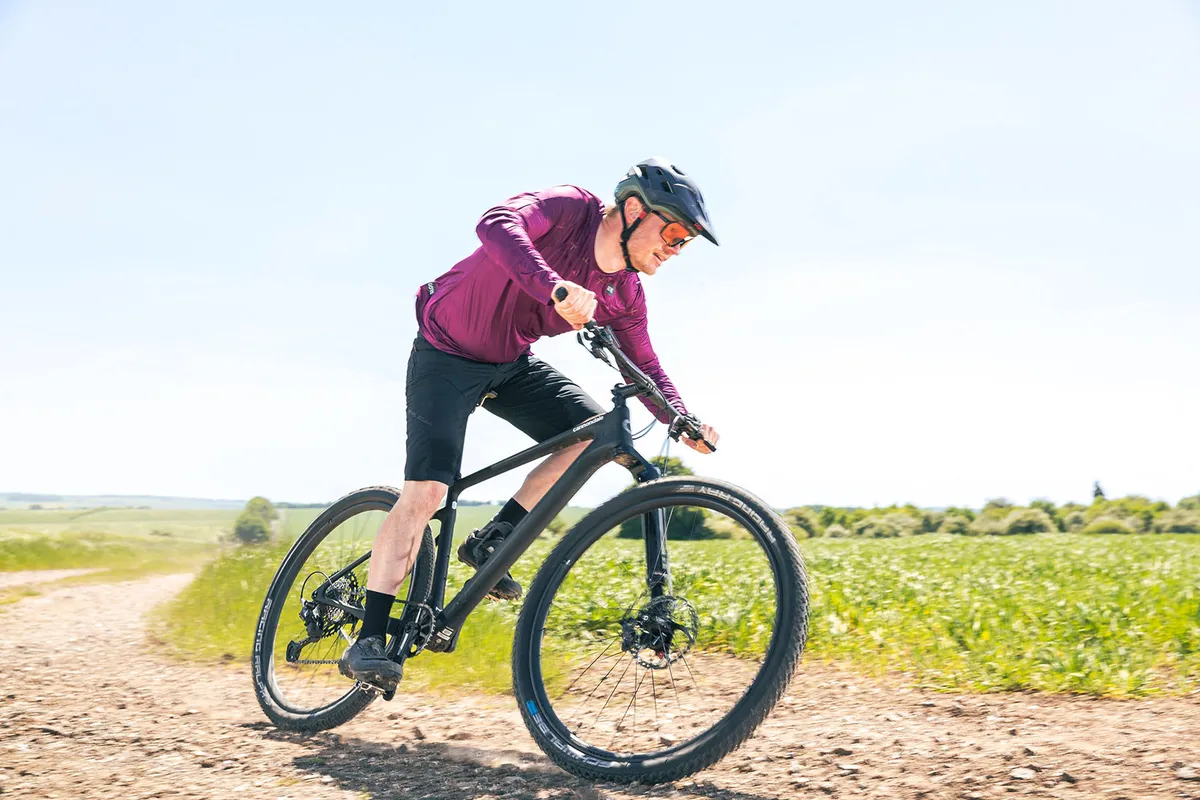
My test rides have been as wide-ranging as I can make them.
I’ve sprinted across town to the local trails straight from our garage, enjoyed epic singletrack missions in the hills, rallied around woodland laps I’ve raced during Welsh XC series races, and scared myself silly on red-graded trail centre laps to see if they can handle the heat when my heart rates were pounding through the roof.
Cannondale Scalpel HT Hi-MOD 1 climbing performance

With a low overall weight, and what feels like a torsionally stiff frame, the Scalpel wastes no time in getting your legs’ Watts delivered straight to the rear wheel.
It feels very taught, with no twist or twang through the front triangle when you’re hauling on the bars, either.
The Schwalbe tyre combo has a more defined tread than tyres such as the Maxxis Rekon Race found on competitor XC bikes, but thanks to the hard Addix Speedgrip (on the front) and harder Addix Speed (rear) rubber compounds, there’s minimal rolling resistance to counteract on smooth climbs.
On such climbs, the firm lockout of the Lefty (it feels firmer than a Fox StepCast 32 and RockShox SID SL when locked out) makes it feel as road-bike efficient as any of the best cross-country bikes I’ve tested.
The lockout is easy to reach. However, I found balancing cable tension between a positive action without it interfering with the fork’s damping difficult to achieve.
In the end, I settled for a slightly lazy un-lock, occasionally requiring a bump to go through the fork, to get the suspension feeling at its best when fully open.
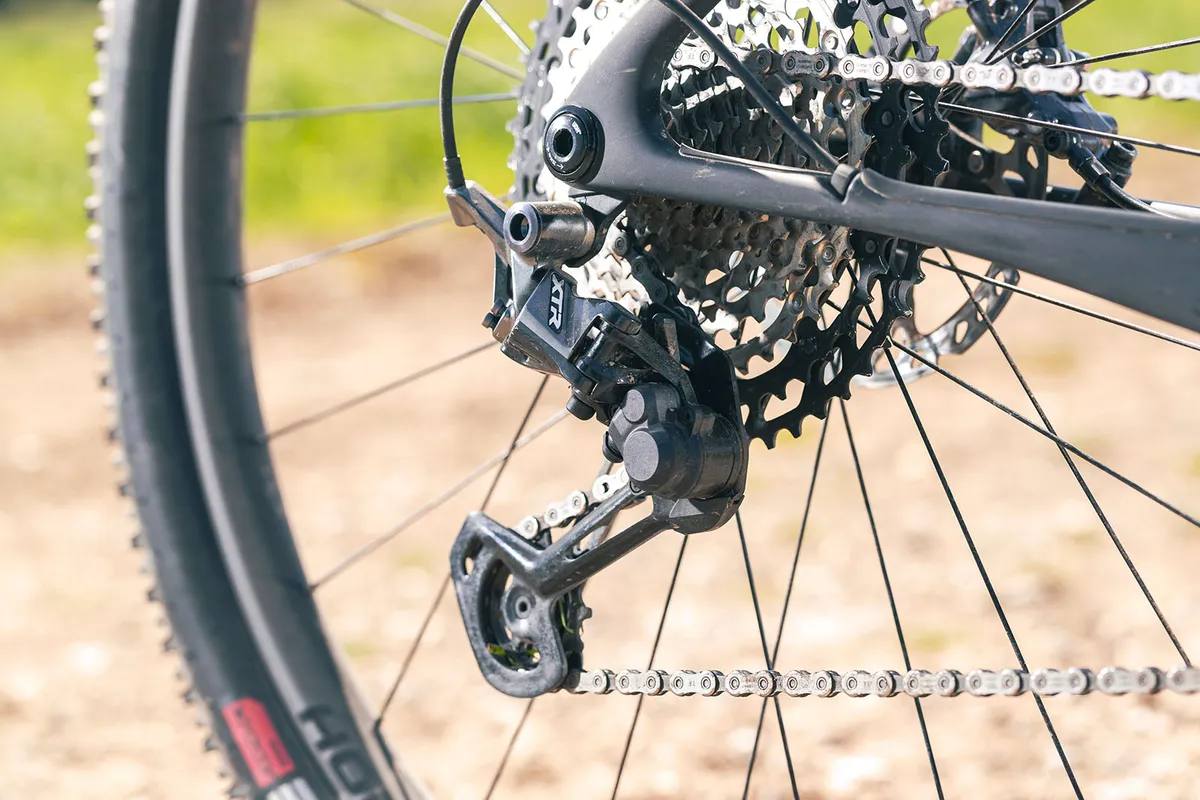
When left unlocked on rougher climbs, the Lefty doesn’t bob around as much as the SID, but it is slightly less stable than the Fox 32 StepCast. However, I didn’t feel it robbed me of any noticeable power.
When the terrain gets more scrabbly, the harder compound and less supple carcass of the Schwalbe tyres left me wanting for traction.
The tyres can spit dirt easier, despite their tread, and the overall experience is less forgiving compared to the Maxxis tyres specced on the other bikes on test. On wet rocks and roots, they struggle too.
This is exacerbated by their relatively narrow stance, at 2.25in.
That said, the Schwalbe tyres work well in the mud – their tread is able to dig in and power you forward.
The Shimano drivetrain performs well, with smooth, accurate shifting even under power.
However, after four test rides, the BB30-86 bottom bracket started creaking – an unfortunate annoyance that needs further investigation.
Cannondale Scalpel HT Hi-MOD 1 descending performance
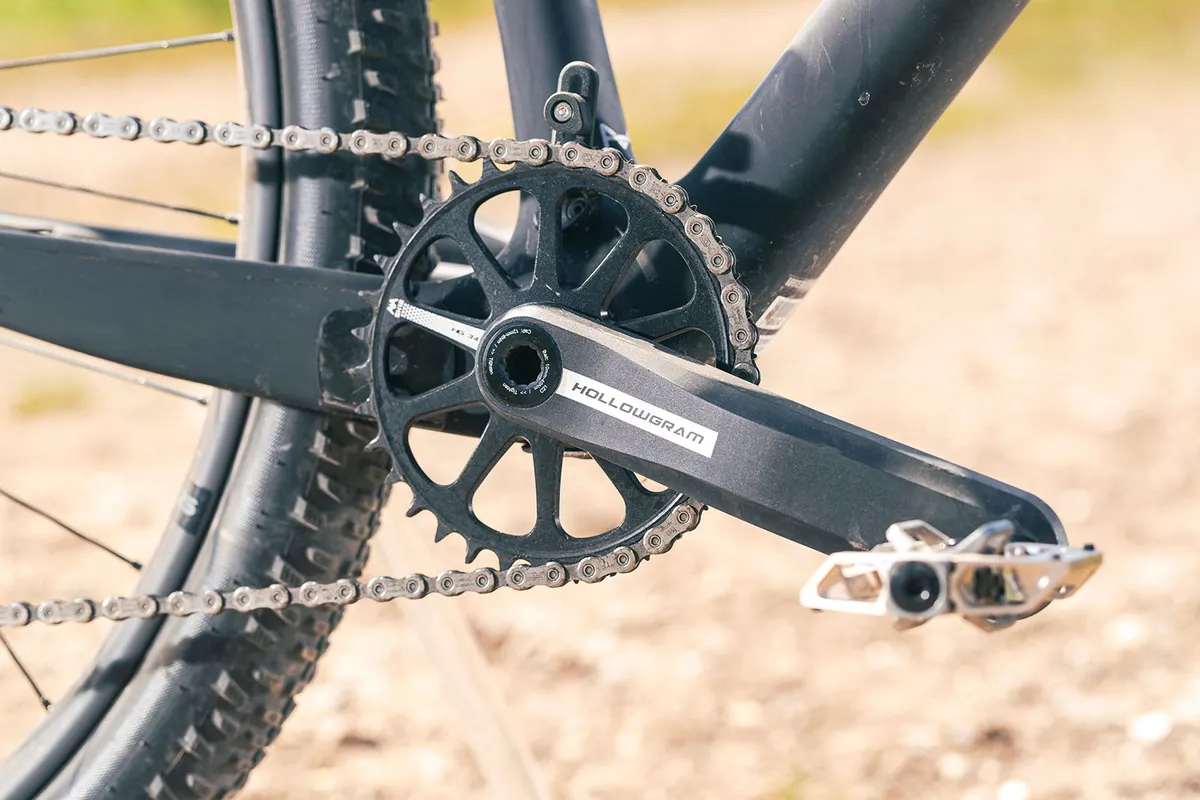
When you’re sat down, powering along chunky fire roads, the Scalpel is razor sharp.
The power transfer is good, and I found it easy to sit on the nose of the Prologo saddle and hammer through the cranks.
The seatpost has a unique curved form under the saddle clamp. Looking down as you go, you can see this area pivoting, taking some of the sting out of the trail.
Up front, there’s more feedback through the bars than with the other bikes I tested the Scalpel against.
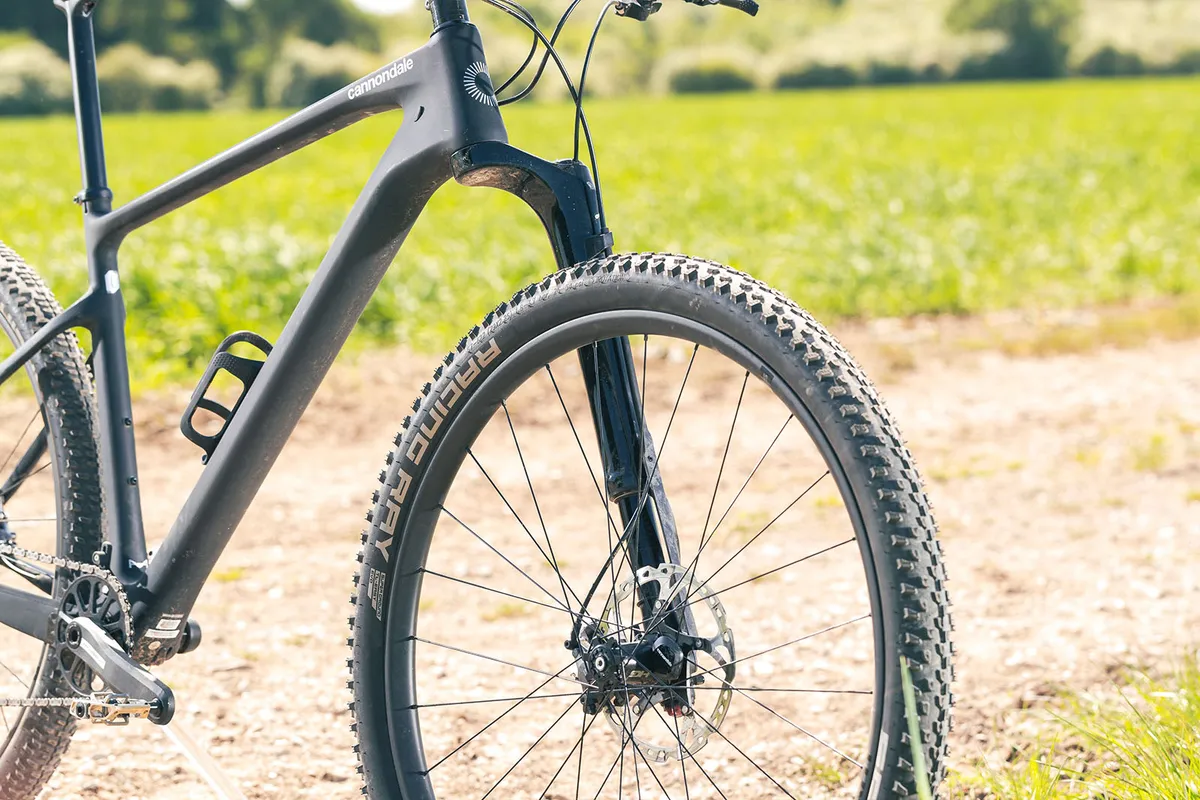
It’s not necessarily harsh, but over long rocky descents, I felt more battered on this than I did on others.
Despite its single-sided design, the Lefty is plenty stiff.
Load the bike onto its side, and there’s no distracting twist. When battering it into a rock garden, the fork flutters fore and aft no more than any of its competitors.
The tyres let the bike down again here though. As mentioned earlier, they’re not the most supple or grippy, and they tend to ping around more when barrelling through rocky sections.
The Scalpel’s head angle might be slack, which aids stability, but the reach figure of 444mm for a size large bike is short.
As such, combined with the skittery tyres, the Scalpel is a little on-edge through fast, loose and rocky tracks.
This combination works well in tight, twisty woodland settings, where the tyres can dig into the dirt, the hits are less square-edged, and the tight handling and quick pedalling reactions give a bike that’s keen to chop and change direction – it begs for a spurt of power out of the corners.

A nice addition to the spec is the small sensor laced into the front wheel. This transmits data to your GPS and phone app.
It can record data without being connected to any device, too, and will auto-stop and start activity recording. Additionally, it’ll give you updates on when to service your bike, via ride time and age.
Outside of the fork’s feel and the tyre’s relative performance, I have a few questions over the bike’s build.
The Cannondale stem’s bolts feel relatively loose with a range of hex keys inserted, and it’d be nice if the front wheel’s axle mirrored the rear in using a 6mm rather than a 5mm – it’d be faster in pitstops at the very least.
The quick-release lever for the brake caliper is an improvement on undoing bolts, but I never quite developed the knack of wheel fitting, especially, with the caliper assembly (and its grease) swinging near my rotors.
How does the Cannondale Scalpel HT Hi-MOD 1 compare to the Pivot LES SL and Lapierre Prorace CF 9.9?
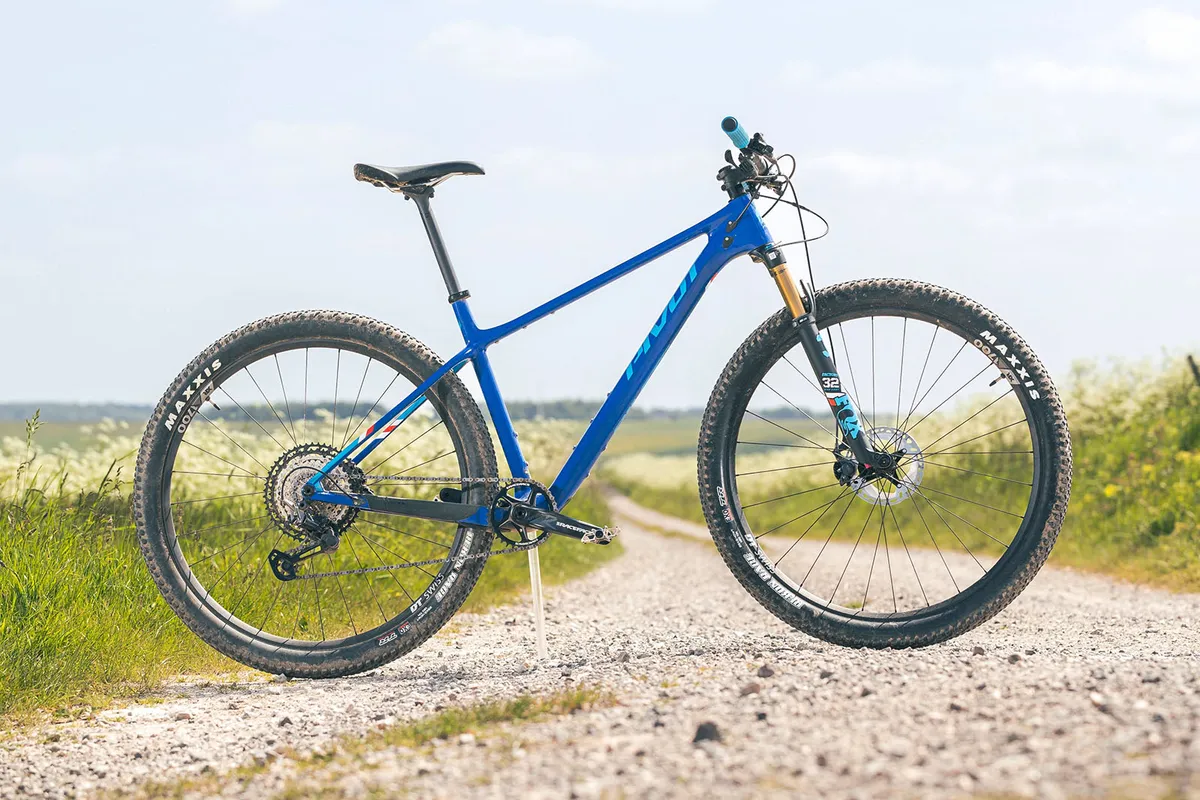
The Scalpel HT surgically cuts a path through tight and twisty tracks almost like no other, but when the trails open out, both the Pivot LES and the Lapierre Prorace edge ahead.
The Scalpel might have the slackest head angle, but the Pivot and Lapierre are calmer and easier to ride when the going gets tough.
This is partly thanks to slightly longer geometry, but also in their tyre choice, both using 120TPI Maxxis Rekon Race rubber. Maxxis’ tyres just seem to generate loads of grip, while offering decent damping, and low rolling resistance.
I preferred the Pivot’s Fox 32 StepCast over the RockShox SID SL on the Lapierre and the Lefty Ocho on the Scalpel. It blends sensitivity with bigger hit control, while feeling calm under pedal inputs.
Cannondale Scalpel HT Hi-MOD 1 bottom line
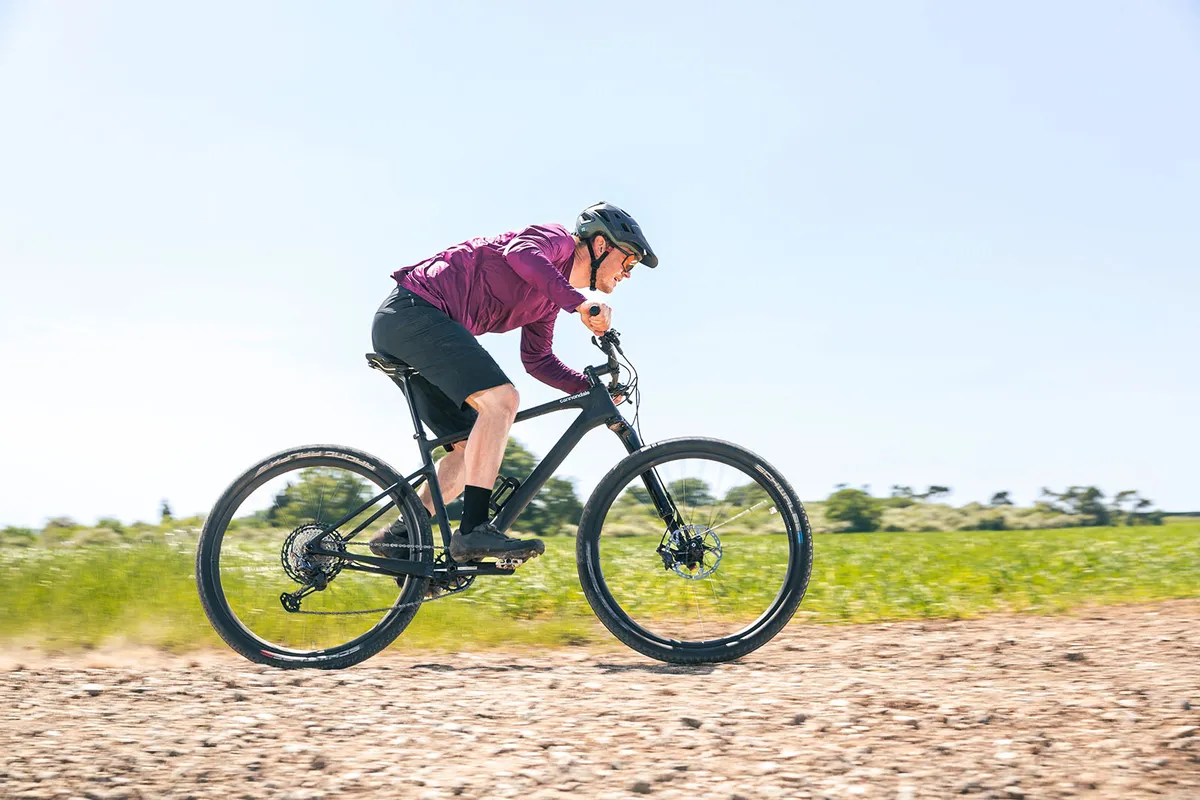
The Scalpel is, no doubt, a fine XC race bike. However, it’s probably suited to smoother, tighter tracks with short, punchy climbs, rather than long, technical courses.
Climbing performance is good, with a solid chassis unyielding under power. On the way down, handling is very snappy, but also not as calm as it could be.
Swapping the tyres would go some way to helping the bike calm its nerves over the rocks, but watch rear mud clearance if you do go to some of the current crop of wide XC tyres.
Product
| Brand | Cannondale |
| Price | A$9999.00, €6999.00, £6200.00, $8600.00 |
| Weight | 9.80kg |
Features
| Fork | Left Ocho Carbon, 110mm travel |
| Stem | Cannondale 1, 70mm |
| Chain | Shimano XT |
| Frame | Hi-MOD Carbon Fibre |
| Tyres | Schwalbe Racing Ray EVO Addix Speedgrip 29x2.25 f, Schwalbe Racing Ralph EVO Addix Speed 29x2.25 |
| Brakes | Shimano XT, 180/160mm rotors |
| Cranks | Hollowgram, 34t |
| Saddle | Prologo Dimension NDR |
| Wheels | HollowGram 25 carbon rims on HollowGram Lefty / HollowGram DT Swiss Star Ratchet hubs |
| Headset | Integrated |
| Shifter | Shimano XT |
| Cassette | Shimano XT |
| Seatpost | Cannondale C1 carbon |
| Handlebar | Cannondale 1 Flat carbon, 770mm |
| Bottom bracket | BB30 |
| Available sizes | S, M, L, XL |
| Rear derailleur | Shimano XTR |
